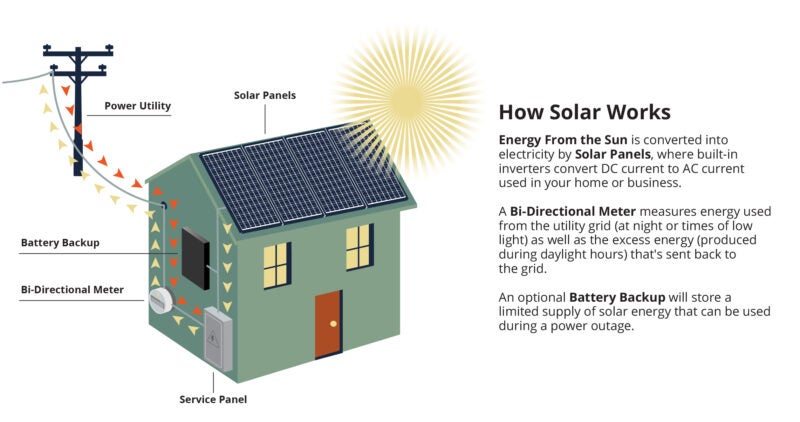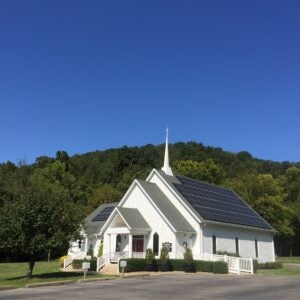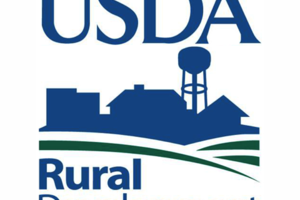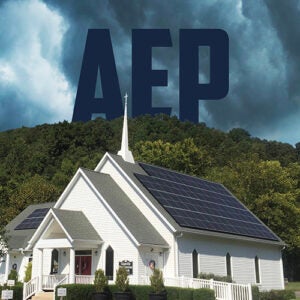
Y’all probably saw where AEP submitted some hefty requests to the Public Service Commission back in August.
Most notably, they wanted:
- Significant rate increases across all customer types including a 25%* + increase specifically for houses of worship. The requests are ridiculous across the board, but under their proposal, houses of worship would be hit hardest.
- Massive cuts to net metering rates and the value of solar.
The PSC has told AEP to revise their request due to technical errors, but we now have a clear picture of their intentions and how ratepayers could be impacted if they get their way. Rest assured they’ll refile their case any day now with the aim of making it much more difficult to go solar and to simply afford electricity. If both their rate increase and net metering requests are approved, we’re looking at a future where churches get about 5 cents per kWh for the solar power they send onto the grid, while paying more than 20 cents per kWh for what they consume… A solar savings decrease of around 75%.
What’s more, AEP wants these changes to take effect in just a few months, before folks have a reasonable chance to make the switch to solar and be grandfathered into the current rate structure. We don’t know the exact timeline, or what the PSC will ultimately decide, but based on what we saw in FirstEnergy’s similar request last year, we think the earliest any changes could come is late summer, 2025.
But church projects and other commercial installations take a while to develop so we’ve set an internal signing deadline of February 28th, 2025, to mark a date that we know we can deliver against. As the case unfolds it could be extended, but at this moment
February 28, 2025, is the deadline for churches and commercial properties in AEP West Virginia to commit to solar and be guaranteed an installation ahead of any potential policy changes.
Here’s what we know –
Anyone that goes solar before the decision is announced will be grandfathered in under the current net metering rate for the next 25 years. And by producing your own power, you’ll be protected from these nonsensical rate increases.
What’s net metering?
Net metering refers to the policy that requires the utility company to credit solar producers for the energy they send onto the grid. Basically, it’s the billing mechanism by which solar saves folks money. Reducing the rate of net metering will reduce the value and savings that solar can deliver. Learn more about how solar works here.
Church solar projects take time.
We know from experience that it can take many months to bring all the pieces together for a church or business to go solar. From getting all the decision makers on the same page to acquiring all the necessary inspections and permits to procuring materials and scheduling the logistics of the installation, these projects can have lengthy timelines. Trust us when we say that nobody wants the added stress of a looming PSC decision hanging over this phase of your project. With that in mind, February 28th, 2025 feels like a safe bet.
We believe in energy freedom for West Virginia
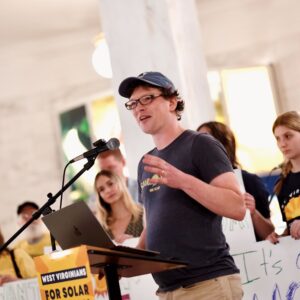
We fought this battle with FirstEnergy last year and we knew it was only a matter of time before AEP followed suit. The added request for rate increases is a bit of a knife twist, but rate hikes aren’t exactly outside the norm for AEP.
For us, the bottom line is this: We believe solar has a role to play in West Virginia’s energy economy and we believe West Virginians deserve a fair marketplace when deciding how to power their homes, churches, nonprofits and businesses. For these reasons, Solar Holler will most likely intervene in the case as the process plays out. We will continue to fight for what’s fair for West Virginians and our energy future.
There’s never been a more compelling reason to make the switch.
The sooner you’re in our pipeline, the better your chances of locking into the current net metering value structure for the next 25 years and protecting yourself from rate hikes. Don’t wait to reach out to explore your solar options. Get in touch ahead of the February 28th cutoff.
*According to AEP’s most recent refiling of the case, they’re now asking for a 14% rate increase for churches and small businesses.
January 30, 2025 update – Take action!
Existing solar owners will be grandfathered under the current net metering rules for the next 25 years, but we’re encouraging all solar advocates to band together and tell the Public Service Commission why you oppose AEP’s efforts to raise rates and cut net metering benefits.
Our friends at Solar United Neighbors created a simple way you can make your voice heard. Please click here to leave your comment for the PSC. (link address: https://act.solarunitedneighbors.org/a/fair-solar-crediting-wv)


